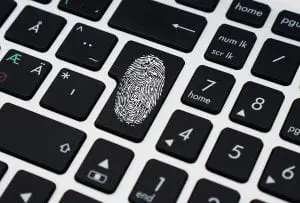From your bank account to your email, it seems that everything online today uses passwords to protect your personal information from hackers and other cybercriminals. However, despite the known dangers of having your personal information out there for anyone to grab, many people don’t take measures to establish strong passwords.

(Pixabay / TheDigitalWay)
It’s common for people to create passwords that are simple to remember and use these passwords on every site. However, this makes it easy for hackers to access your information on multiple platforms. To ensure that you and your information are safeguarded, it is crucial to create a secure password.
Here are some things you can do to strengthen your passwords and protect your information:
- Add symbols to the mix — Many websites are now forcing their users to add special symbols or punctuation to their passwords. Including characters other than letters and numbers can help make your password stronger and more difficult to hack.
- Make your password longer — Having a longer and more intricate password makes it more difficult for hackers to guess your password or enter through brute force. Most hackers use computer software that will run through different combinations of letters to discover your password. Passwords that use only six characters and include the alphabet and numbers 0 to 9 produce over 2 billion possibilities for passwords, and can take weeks for a hacker to crack, if ever. If you increase the number of characters to 10 or more, you increase the possibilities exponentially, making it virtually impossible for hackers to discover your password.
- Avoid common phrases — While common phrases are easier to remember, they are also easier for hackers to discover. Instead of using words, creating a random sequence of letters can make it more difficult for hackers to detect a pattern.
- Don’t use passwords that are easy to guess — With the emergence of social media, there’s a lot of information about you out in the open for hackers to access. For your password, steer clear of your birthday, family members’ names, pets’ names, phone numbers, or other information that is easily accessible.
While making up different passwords that are strong can be difficult, protecting your personal information to the utmost of your abilities is crucial. If you have trouble keeping track of your passwords, there are systems and services that can help you store them securely for when you need them.